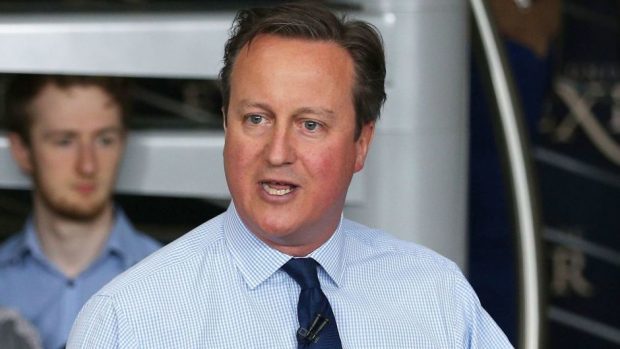David Cameron said last night he was angry that his late father’s memory had been “traduced” over the offshore fund he created.
The PM told MPs the way in which the Blairmore holdings trust had been established amounted to “entirely standard practice” and was not designed to avoid tax.
He also pointed out that many councils, trade unions and news organisations had similar arrangements.
Defending his father, Mr Cameron said: “I know he was a hard-working man and a wonderful dad and I’m proud of everything he did to build a business and provide for his family.
“I accept all of the criticisms for not responding more quickly to these issues last week, but, as I said, I was angry about the way my father’s memory was being traduced.”
Mr Cameron, who offered to provide more information about his personal finances to the Parliamentary Standards Commissioner if required, said:
- The fund was registered with the UK Inland Revenue from the beginning and was properly audited.
- It was not a family trust, but a commercial investment fund for any investor to buy units in.
- Its share price was listed in the Financial Times.
- An annual return was submitted to the Inland Revenue.
- UK investors paid the same taxes as with any other share.
- It was set up overseas in the first place because it was going to be trading predominantly in dollar securities.
The Conservative leader sold his shares in the fund for around £30,000 in 2010, making a profit of some £19,000.
He has made clear he paid income tax on the dividends and was not liable for capital gains tax on the sale as the profit was less than the allowance.
At the same time, he sold all his other shares – believed to be worth around £70,000 – because he wanted to avoid any conflict of interest in his new role as PM.
Mr Cameron also received gifts worth £200,000 from his mother Mary which followed his £300,000 inheritance upon his father’s death.
The payments, made in May and July 2011, were given tax free and will only become liable to inheritance tax of up to 40% if Mr Cameron’s mother dies within seven years of handing over the money.
There is no suggestion that they have broken any rules.
Yesterday, Mr Cameron said parents should not be embarrassed about passing money on to their children and insisted it was something “fully recognised” in the tax system.
